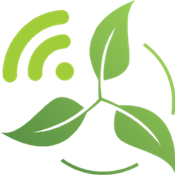Inovação para a Agricultura


biomonitor
- Entidade líder do projeto: Wageningen University and Research
- Responsável pelo projeto: Justus Wesseler
- Site do projeto: http://biomonitor.eu/
- Parceiros:
UNIVERSITA CATTOLICA DEL SACRO CUORE; IMPERIAL COLLEGE OF SCIENCE TECHNOLOGY AND MEDICINE; LATVIJAS LAUKSAIMNIECIBAS UNIVERSITATE; SLOVENSKA POLNOHOSPODARSKA UNIVERZITA V NITRE; TECHNISCHE UNIVERSITAET MUENCHEN; CENTRO DE INVESTIGACION Y TECNOLOGIA AGROALIMENTARIA DE ARAGON; CENTRAAL BUREAU VOOR DE STATISTIEK; STICHTING ENERGIEONDERZOEK CENTRUM NEDERLAND; JRC -JOINT RESEARCH CENTRE- EUROPEAN COMMISSION; STICHTING KONINKLIJK NEDERLANDS NORMALISATIE INSTITUUT; JOHANN HEINRICH VON THUENEN-INSTITUT, BUNDESFORSCHUNGS; INSTITUT FUER LAENDLICHE RAEUME, WALD UND FISCHEREI; STICHTING WAGENINGEN RESEARCH; DELOITTE CONSEIL SAS; EUROPEAN FOREST INSTITUTE; FONDAZIONE ICONS; NOVA-INSTITUT FUR POLITISCHE UND OKOLOGISCHE INNOVATION GMBH; SWETREE TECHNOLOGIES AB
- Breve descrição:
The BioMonitor project will establish a sustainable and robust framework different stakeholders can use to monitor and measure the bioeconomy and its various impacts in relation to the EU and its Member States.With BioMonitor, statistical officers will have access to a comprehensive data sets and new indicators on the bioeconomy. Moreover, custom officers will be kept up-to-date regarding the standards and certifications that will be used when dealing with emerging bio-based products and materials.
Using the solid data sets and indicators established within the BioMonitor framework, EU and national policy makers will be able to understand the bigger picture and make informed decisions by asking the right questions – in terms of job demand and opportunities and consumption of bio-based products. BioMonitor will encourage mutual understanding between the industries and the statistical and customs officers. In this way, data from both parties will sustain transparency and accountability of businesses in the bioeconomy sector.














